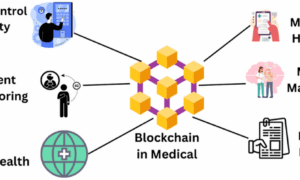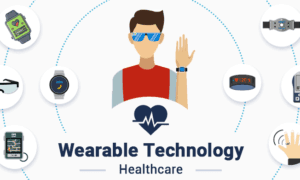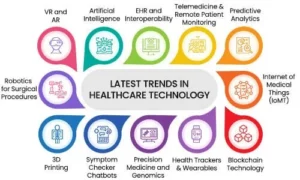Artificial Intelligence (AI) has revolutionized numerous industries, and one of the most promising fields where AI is making a significant impact is healthcare. In recent years, AI-powered assistants have emerged as a game-changer in the healthcare sector, transforming the way medical professionals diagnose, treat, and manage patients. This comprehensive analysis explores the profound effects of AI-powered assistants on healthcare, showcasing the remarkable advancements and potential they hold for the future.
Introduction
Enhanced Diagnostics and Early Detection
One of the most substantial contributions of AI-powered assistants to healthcare is in the realm of diagnostics. These intelligent systems have the ability to analyze vast amounts of medical data with lightning speed and accuracy, helping medical professionals make more precise diagnoses. AI algorithms can identify patterns and anomalies in medical images like X-rays, MRIs, and CT scans, often surpassing human capabilities in terms of accuracy and speed. This not only leads to faster diagnosis but also increases the chances of early detection of diseases like cancer, which is critical for successful treatment.
Personalized Treatment Plans
AI-powered assistants are adept at tailoring treatment plans to individual patients. By analyzing a patient’s medical history, genetic makeup, lifestyle, and treatment response data, AI can recommend personalized treatment options. This level of personalization ensures that patients receive the most effective and efficient care, minimizing side effects and improving overall outcomes.
Predictive Analytics and Preventive Care
Predictive analytics, powered by AI, play a vital role in preventive healthcare. These systems can forecast disease outbreaks, identify populations at risk, and even predict individual patient health declines. By monitoring patient data and using machine learning algorithms, healthcare providers can intervene proactively, preventing health issues before they become severe. This not only saves lives but also reduces the financial burden on healthcare systems.
Automation of Administrative Tasks
AI-powered assistants are not limited to clinical applications alone. They have found their place in streamlining administrative tasks within healthcare facilities. From appointment scheduling to medical billing and coding, AI automation significantly reduces the administrative workload for healthcare staff. This not only saves time and resources but also minimizes errors, leading to smoother operations and improved patient experiences.
Improved Telemedicine and Remote Monitoring
Telemedicine has gained immense popularity, especially in the wake of the COVID-19 pandemic. AI-powered assistants have played a crucial role in enhancing telemedicine by providing remote monitoring and diagnostic capabilities. Patients can use wearable devices that are integrated with AI to monitor vital signs and share real-time data with their healthcare providers. This remote monitoring enables early intervention, reduces hospital admissions, and ensures better continuity of care for patients, especially those with chronic conditions.
Drug Discovery and Research Advancements
AI is also transforming the drug discovery process, which traditionally has been a time-consuming and costly endeavor. AI algorithms can analyze vast datasets to identify potential drug candidates, predict their effectiveness, and even simulate clinical trials. This speeds up the drug development process, lowers costs, and brings new treatments to market more quickly. AI-driven research is also accelerating scientific discoveries, opening up new possibilities for understanding diseases and developing innovative therapies.
Addressing Healthcare Worker Shortages
The healthcare industry is facing a shortage of skilled professionals, including doctors and nurses. AI-powered assistants can fill this gap to some extent by performing routine tasks and offering decision support. For instance, chatbots can provide initial patient assessments, reducing the workload on healthcare providers. This allows healthcare professionals to focus on more complex tasks, leading to increased efficiency and improved patient care.
Ethical and Privacy Considerations
While AI-powered assistants offer tremendous benefits, they also raise ethical and privacy concerns. It’s essential to ensure that patient data is securely handled and that AI systems are transparent in their decision-making processes. Additionally, healthcare professionals must maintain their roles as primary decision-makers, with AI serving as a valuable tool rather than a replacement.
Conclusion
The impact of AI-powered assistants on healthcare is profound and multifaceted. From enhanced diagnostics and personalized treatment plans to preventive care and administrative automation, these intelligent systems are changing the face of healthcare. As AI continues to evolve, we can expect even more remarkable advancements in the field, ultimately leading to better patient outcomes, reduced costs, and improved overall healthcare experiences. However, it’s crucial to navigate the ethical and privacy considerations carefully, ensuring that AI remains a valuable tool in the hands of healthcare professionals, dedicated to improving the well-being of patients around the world.



































